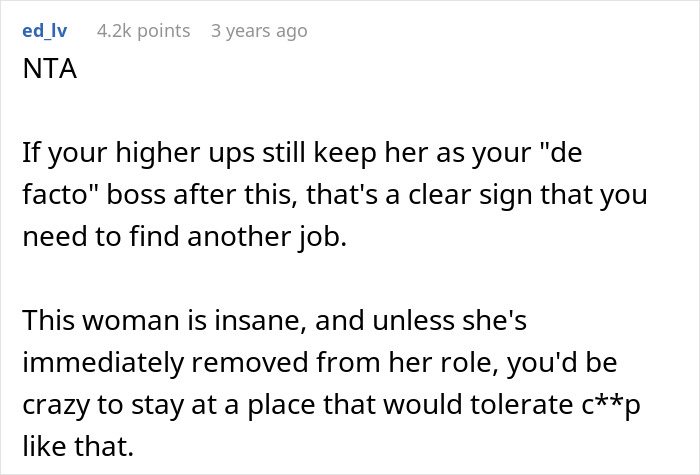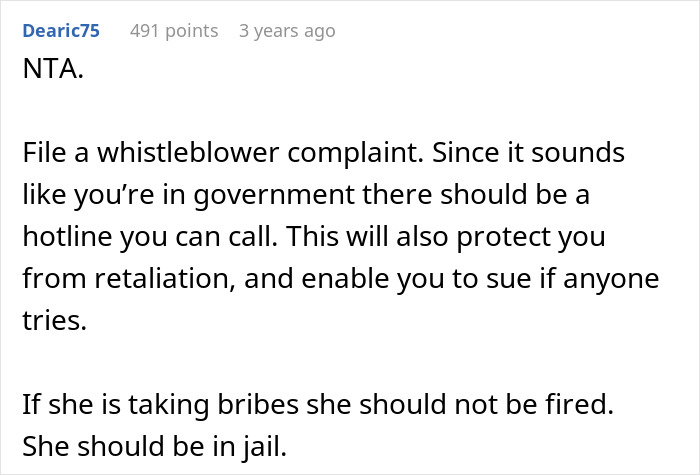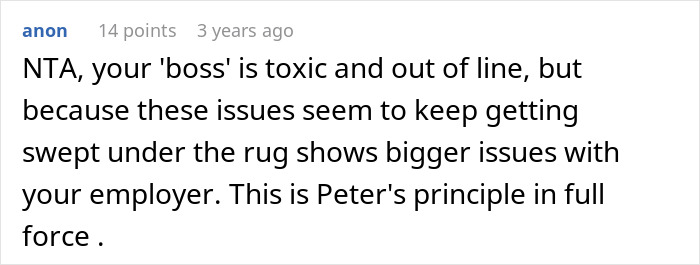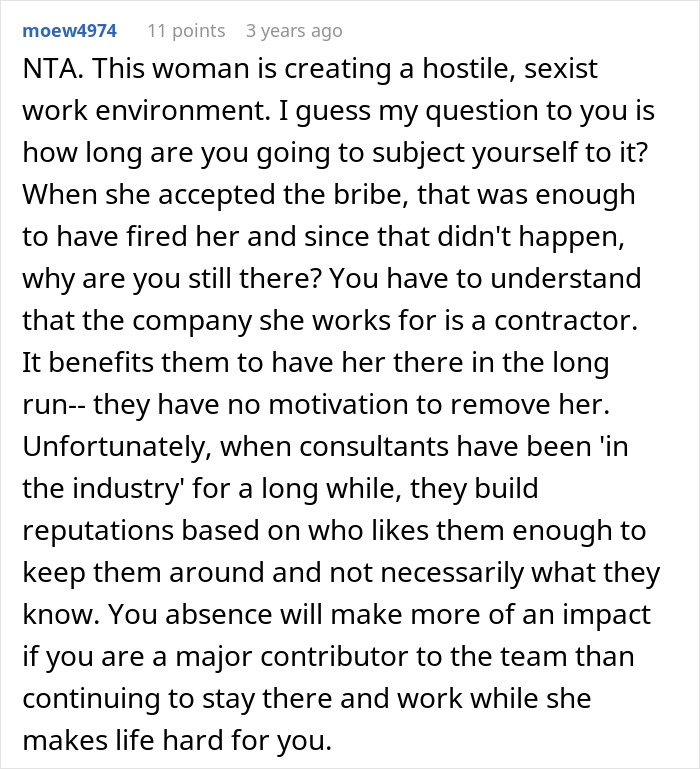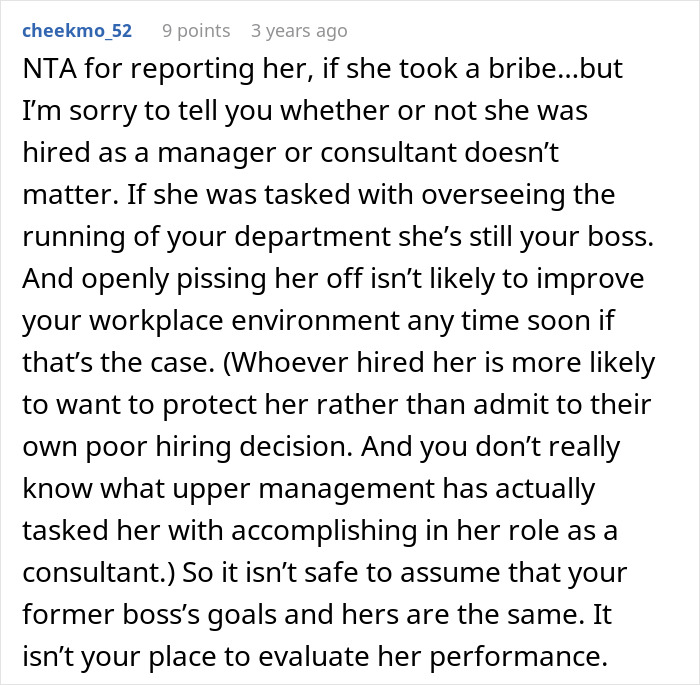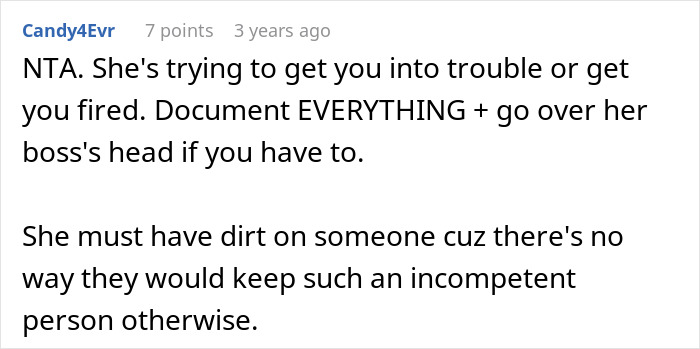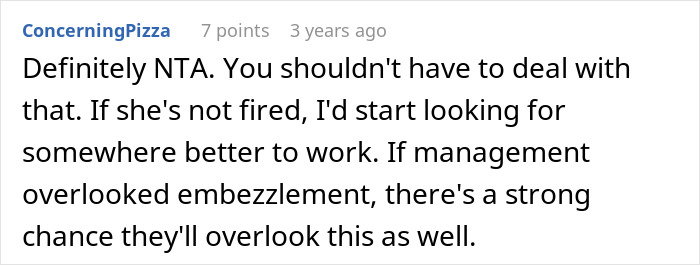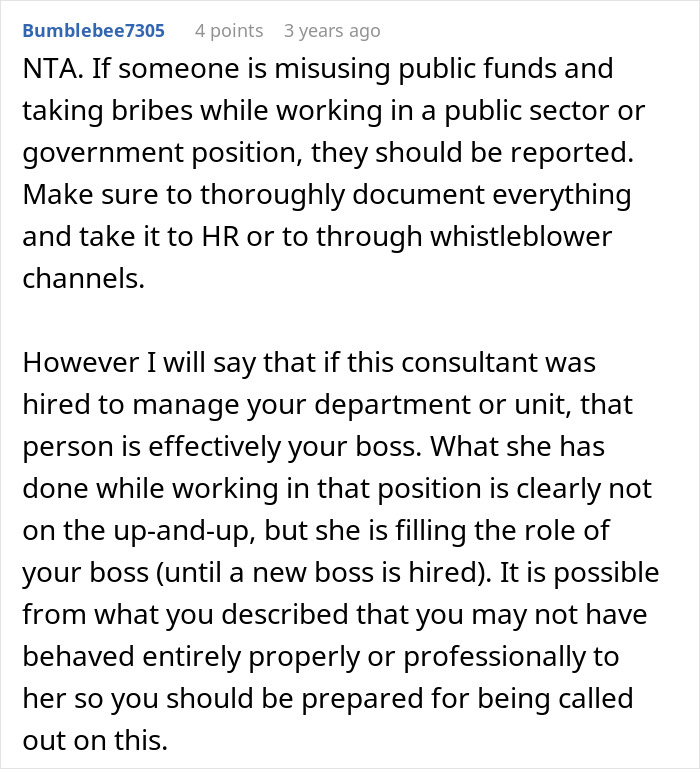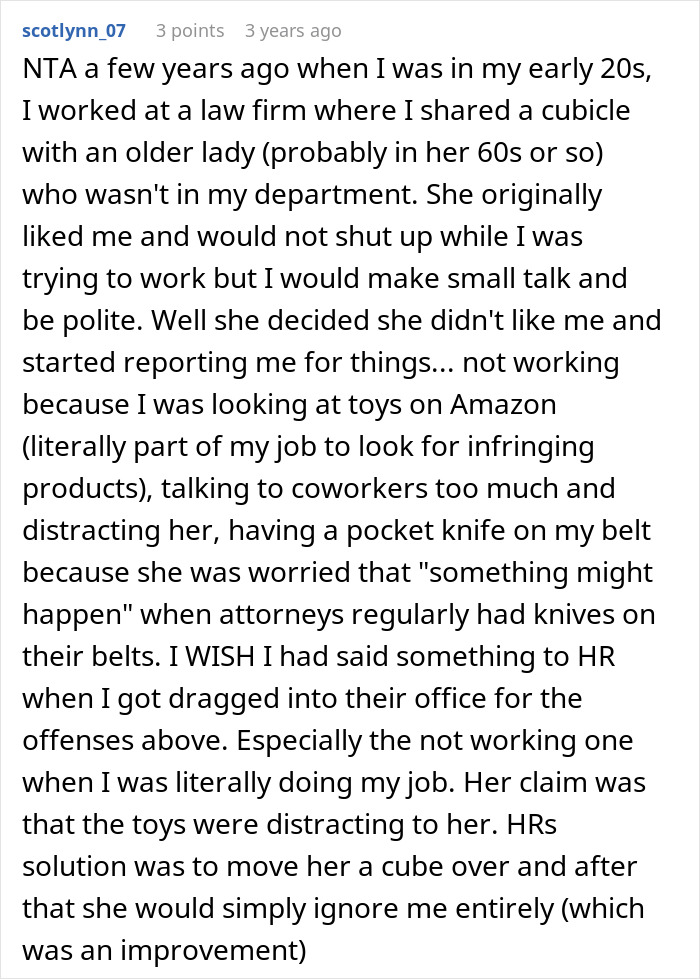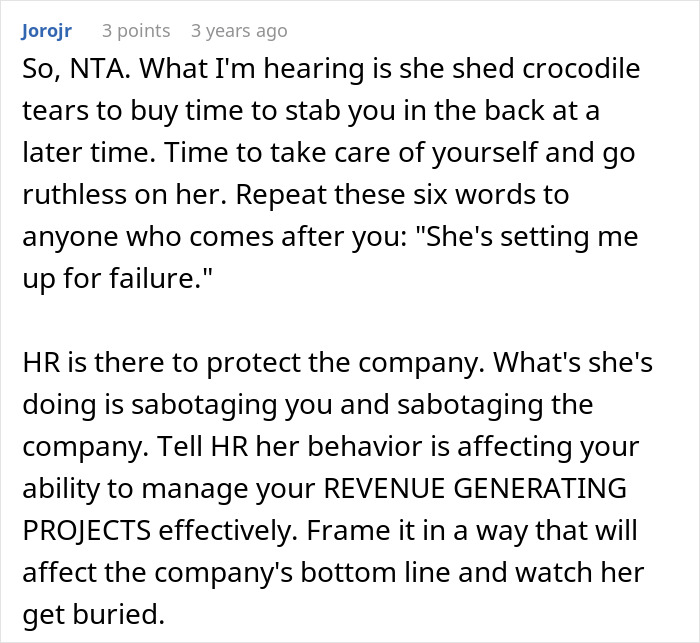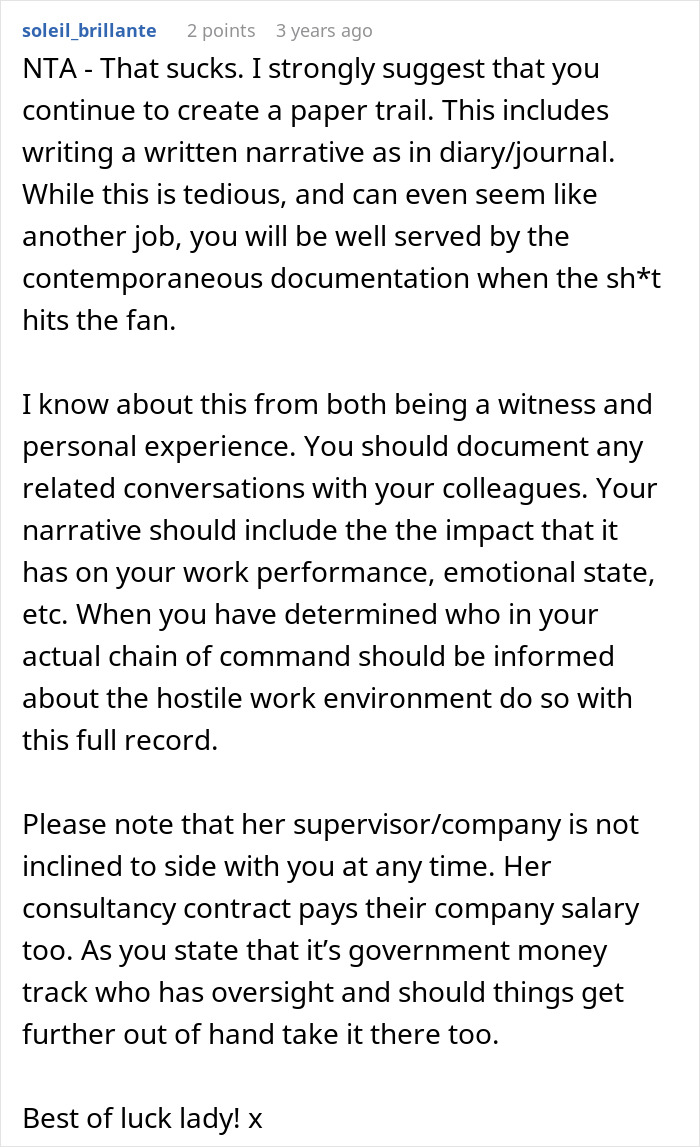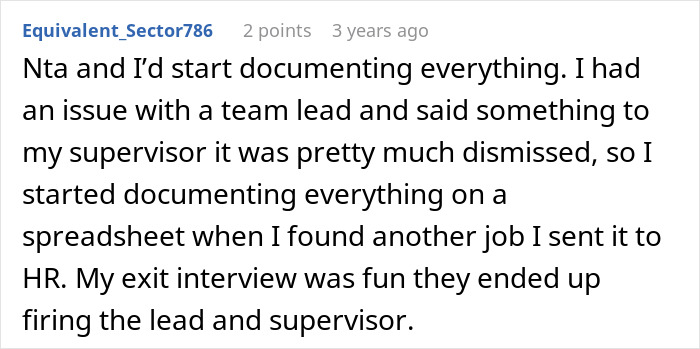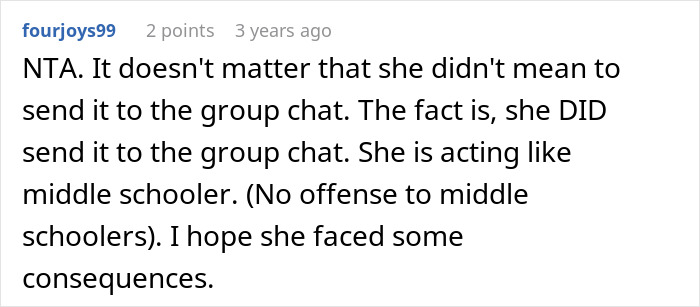In theory, the existence of human resources, rules, managers and a separation of professional and home life should mean that workplace drama stays at a minimum. The reality is that petty jealousies, entitlement and just unhinged human behavior can still show up even in the most inappropriate settings.
A woman turned to the internet for advice on how to deal with an older boss who would constantly diminish her work and even literally spy on her. We reached out to the person who made the post via private message and will update the article when she gets back to us.
A boss spying on you is a great way to diminish a worker’s morale
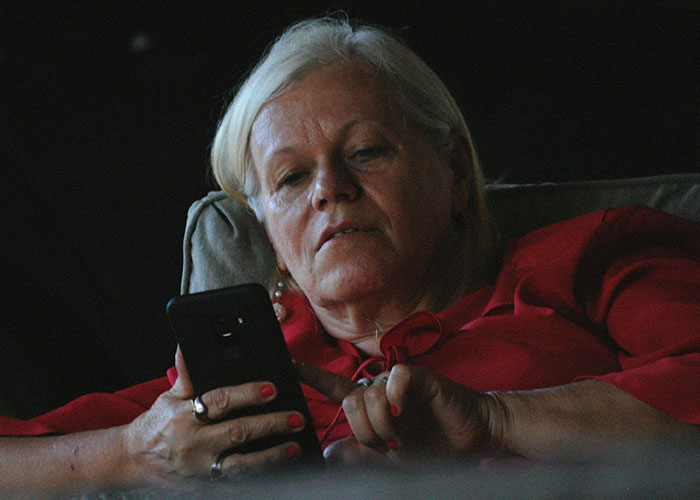
Image credits: Linoleum Creative Collective / unsplash (not the actual photo)
So one woman had to escalate things when her boss asked a coworker to report on her activities
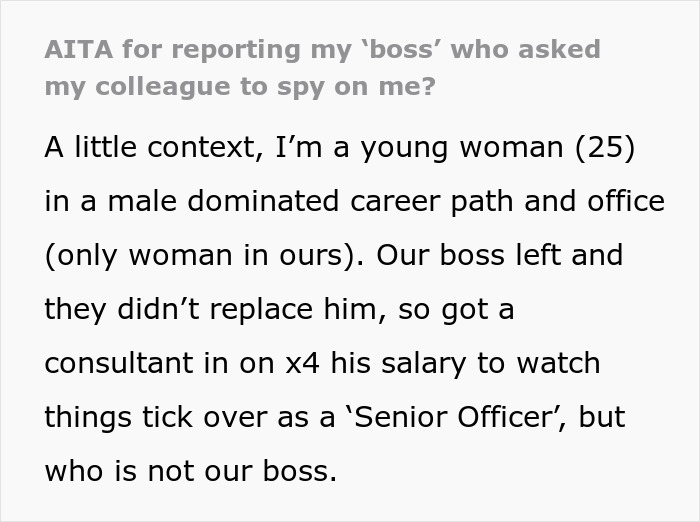
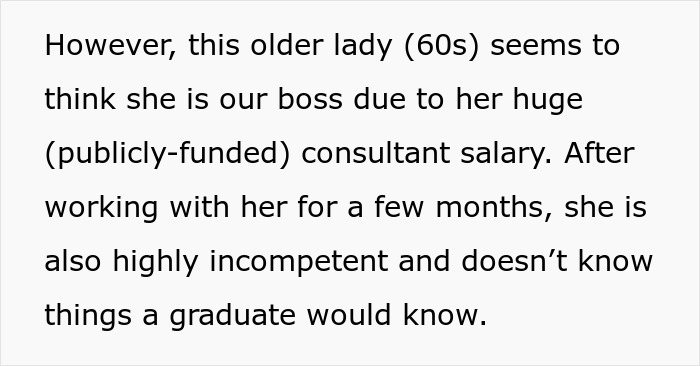
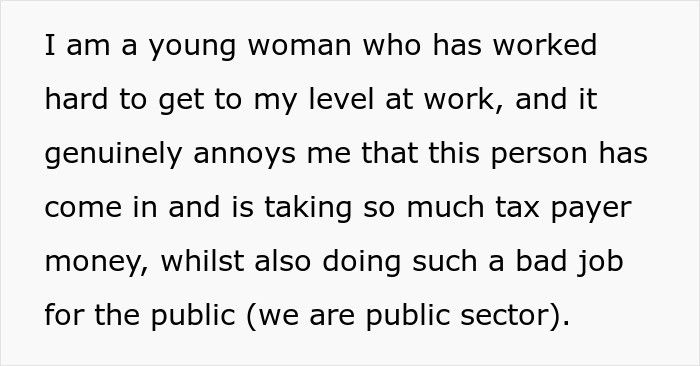

Image credits: Getty Images / unsplash (not the actual photo)
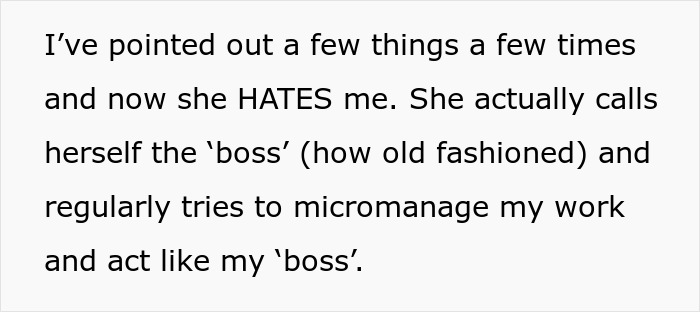
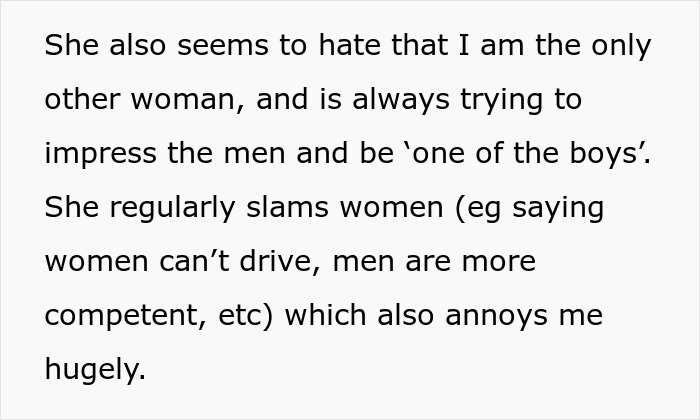
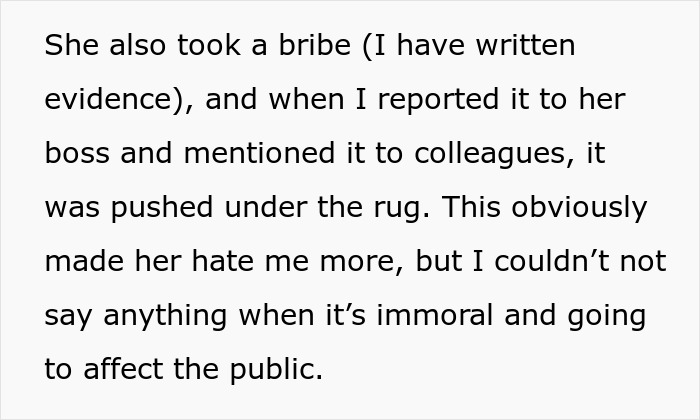
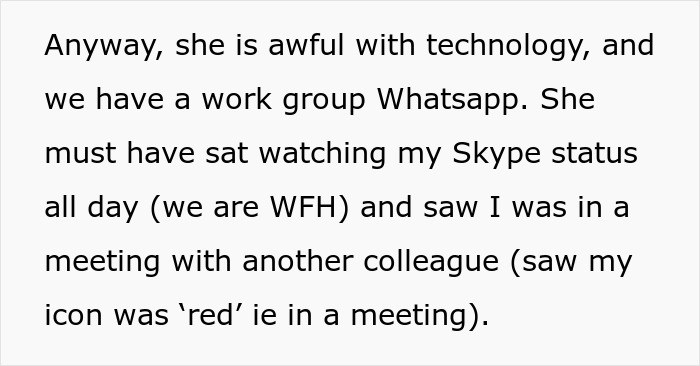

Image credits: Getty Images / unsplash (not the actual photo)
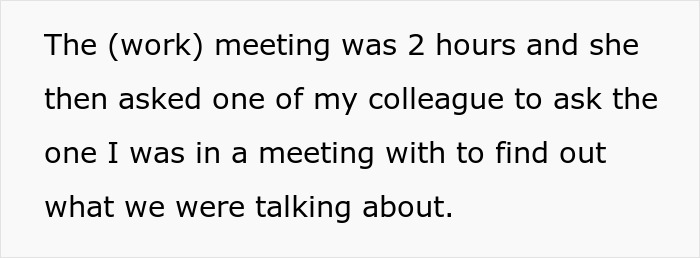
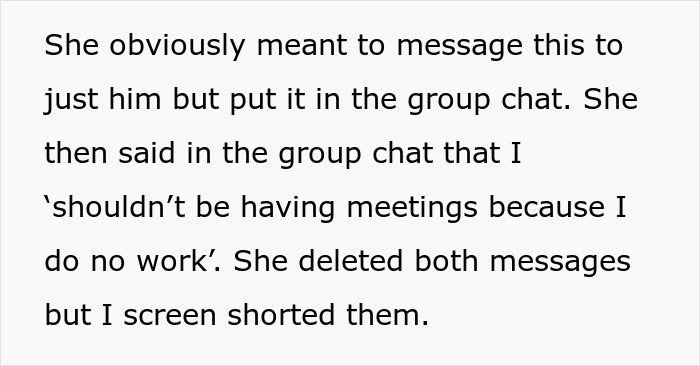
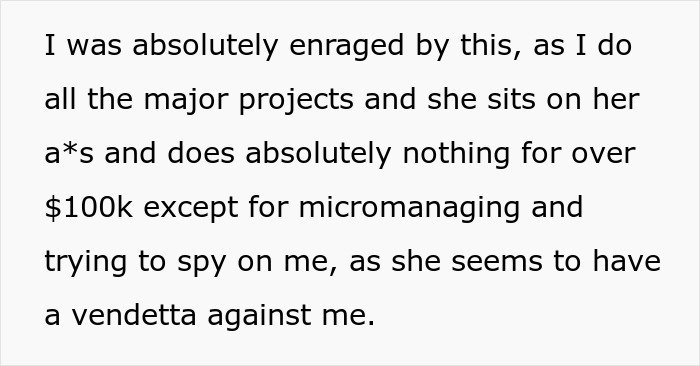

Image credits: Alexander Mass / unsplash (not the actual photo)
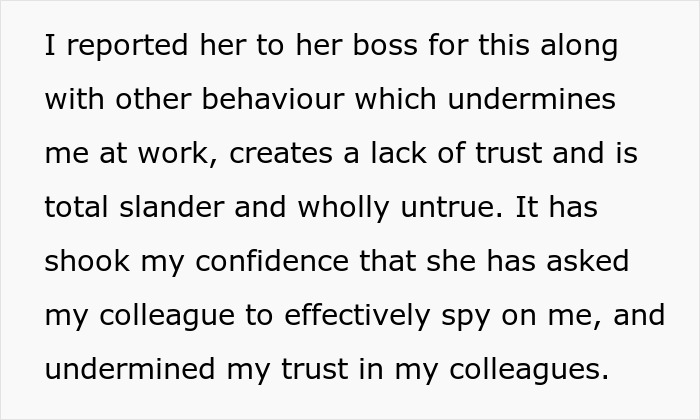
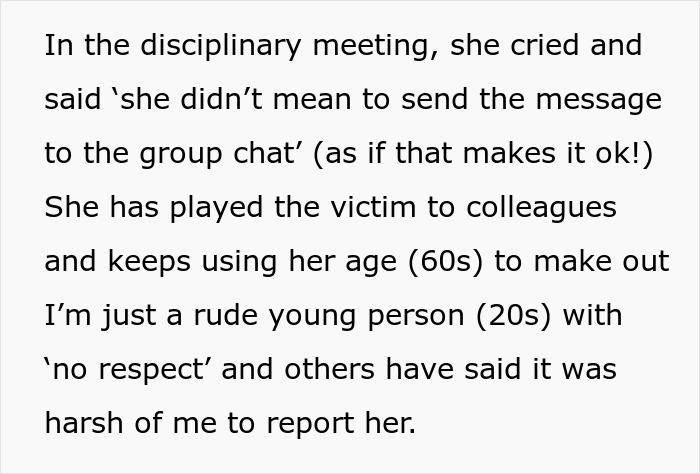

Image credits: Familiar-Plantpot-9
Some people are still suspicious when people work remotely

Image credits: BRUNO CERVERA / unsplash (not the actual photo)
Some entitled ageing workers will have to snoop on their colleagues, particularly folks who work from home, because of a centuries-long lack of trust in modern ways of working and the view that productivity must be monitored if it is to be real. Having created their professional careers in traditional office environments where professional growth was measured by time spent at the desk, punctuality, and visible work, they can struggle to adapt to a more results-focused and self-managed attitude of remote or blended work. For them, the absence of face-to-face management can result in feelings of losing discipline and accountability. They may think that others will take advantage of the system in their absence, a thought based less on reality than on projection.
A good number of times, this need to observe others is caused by insecurity and fear of being left behind. As the professional world trends towards digital literacy and flexible working, some of the veterans may feel their accrued experience is now less valued. As younger colleagues learn to pick up collaboration tools with ease, juggle tasks asynchronously, or perform well without micromanaging, it disrupts the established status quo that had long defined their value. Rather than try to adapt, some push back against change, by inserting themselves into others’ processes, inquiring intrusive questions masquerading as “concern,” or unofficially monitoring when people are online, present, and even the cadence at which they respond to messages.
This kind of behavior is also a function of generational power relationships. Older workers will assume a management function, even when they lack formal power over fellow workers. They will assert the privilege of monitoring, reporting on, or “fixing” colleagues who are not doing things right in their eyes. To them, they are enforcing standards or “serving the company” by doing so. But in fact, much of the time, this is really about imposing traditional norms and creating status in an increasingly horizontalizing, more trusting workplace.
As in this story, a lack of trust in one’s boss is bad for everyone

Image credits: Getty Images / unsplash (not the actual photo)
The damage caused by this sort of informal monitoring is often undervalued. It creates a culture of distrust and erodes psychological safety, the sense that you can work freely without risk of judgment, monitoring, or misrepresentation. It even leads to passive-aggressive conduct, undue tension within colleagues, and even formal action if the management reacts to information based on supposition rather than fact. When someone feels watched, they’re bound to start performing defensively rather than creatively, concerned with image at the expense of effect. That’s a setback for everyone.
If you feel that a co-worker, particularly one who seems rooted in old office habits, is observing your work, recording your steps, or subtly undermining you with management, you need to address it skillfully but firmly. The first step is to document what is occurring. Note events, comments, or patterns that make you suspect the behavior is inappropriate or invasive, especially if the actions expose you or are unreasonable. Gather details, dates, times, interactions, and any communication that did not feel right or felt inappropriate or overly inquiring. Do not rely on nebulous impressions, details matter if it’s going to come up to someone higher up.
So what should someone do?

Image credits: Andrej Lišakov / unsplash (not the actual photo)
If you have to report this to management or HR, frame the issue clearly in terms of how it affects your performance, doing your job. Confine yourself to professionalism issues, not personal attacks. Maintain an objective tone, not emotional, and be prepared to clarify how the behavior affects team morale or productivity.
Where you can, propose a positive solution. You might propose a reminder to staff from management about boundaries, expectations, and trust in a remote work culture, or propose more specific guidelines around performance expectations and communication that apply to everyone equally. Managers might be unaware of tensions lurking, especially if they’re passive or informal monitoring. Raising it responsibly enables them to remind staff of good work norms before things become an issue.
Most of all, remember that the feeling of being spied on or monitored by a peer is not something that you just have to accept, especially when it is driven by entitlement, resentment, or inability to adapt. Organizations excel when autonomy and trust are values, not fear and control. If you’re being made to feel as though you need to answer every hour or defend yourself as working hard enough, the issue isn’t your performance, it’s the old-fashioned mentality of those attempting to project their own insecurities onto others.
Most thought she did the right thing
